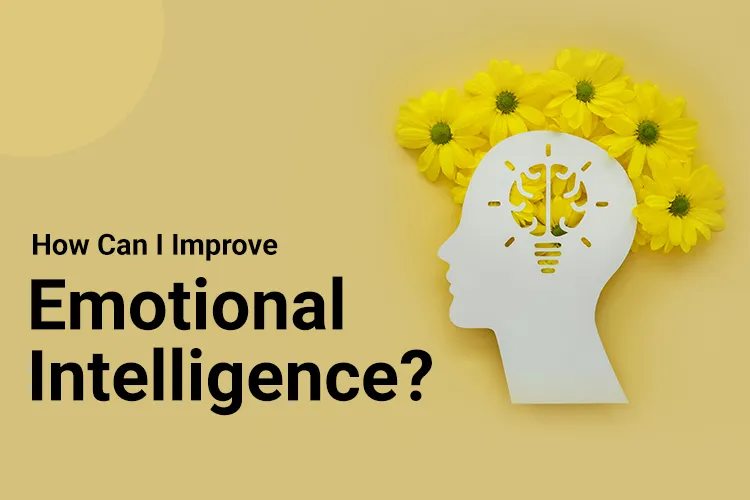Emotional Intelligence: Key to your success
Understanding and controlling your own and other people’s emotions is known as emotional intelligence, commonly referred to as emotional quotient or EQ. Similar to IQ, emotional intelligence may also be tested through numerous tests, although EQ measures emotional intelligence rather than cognitive intelligence.
Although everyone can benefit from emotional intelligence, people in leadership positions need it more than others. Leaders that possess emotional intelligence are able to communicate clearly, empathize with others, and handle conflict. These skills are all characteristics of effective leaders.
List of Emotional Intelligence skills you need
- Self Awareness
Knowing your weaknesses, potential, feelings, thoughts, and motivations is being self-aware. Leaders that are skilled at identifying and controlling their emotions are better able to understand the emotions of others and have a better grasp of employee motivation. You may encourage open communication and trust within your team by owning up to your shortcomings. By being aware of the areas in which you must excel to enhance your career, you can also take control of your professional development.
- Self Regulation
How you control your emotions, behaviors, and impulses is referred to as self-regulation. This gets simpler the more self-aware you are; if you can identify what you’re experiencing and why, you can react correctly.
There are techniques you can employ to strengthen your self-regulation if you are prone to emotional outbursts or overreactions, such as:
- Taking a Pause Before Replying: Let yourself some time to pause and consider your response before speaking. This might be as easy as taking a deep breath and giving yourself a 20-second break to let your feelings pass and enable your thinking to take over.
- Taking a Step Back: It’s okay if you occasionally need to leave the room. It’s frequently preferable to go for a stroll, sip some water, or call a buddy as opposed to making a fast decision, sending a critical email, or lashing out at your colleagues.
- Understanding Your Feelings: Try writing down how you’re feeling and what’s upsetting you. You’ll probably begin to notice patterns. Knowing your triggers will help you respond more healthily and constructively the next time a situation similar to this arises.
If you need any support with your mood swings, our wellness counselors can help you.
- Empathy:
Empathy, the capacity to comprehend another person’s feelings and emotions, has been named by international consulting firm DDI as the most important leadership quality required today. Leaders who listen well and respond with empathy do more than 40% better in coaching, planning, and decision-making, according to DDI research.
You may increase engagement, establish trust, and more skillfully coach your colleagues through obstacles by paying close attention to what they want and need. Your employees will be more invested and have higher morale if they feel valued, which will strengthen the corporate culture.
- Motivation
Your capacity to compel both yourself and other people to action is referred to as motivation. Here, setting an example is crucial. Self-motivated leaders are more concerned with achieving corporate goals than with receiving financial rewards. They make plans, take the initiative, take on difficulties, and maintain optimism even under trying circumstances. Your employees will feel more assured the more upbeat you are. Your intrinsic motivation will spread throughout the company, and you’ll know more about how to empower workers as a result.
- Social skills
Understanding emotions and interacting and communicating with people are the core components of social skills. For instance, emotionally intelligent leaders are able to enter a room of employees who are clenching their fists and pursed their lips and not only perceive the tension, but also know how to handle it and find a solution before it worsens.
It will be simpler to evaluate people’s emotions if you are more aware of your own. Also, you can establish and maintain relationships more quickly if you can gauge the emotions of people. Strong socially-skilled leaders are aware that they cannot succeed on their own. Collaboration, communication, and a common vision are necessary for exceeding objectives and accomplishing milestones.
Download our app to get remedies and day-to-day therapy solutions to make your life healthy and happy.
Tips To Improve Your Emotional Intelligence
- TRY JOURNALING
Consider your meetings, projects, and interactions from the day’s activities, both good and bad. You can identify precise patterns in your behaviour and responses, as well as those of others, by writing down your ideas.
Where were you the best? How do your staff members feel? Do you ever get frustrated with particular persons or circumstances? If so, why? The better, the more introspective you are. For instance, you’ll become more conscious of what irritates you so that you can prevent a future tantrum or imitate behaviors that have been shown to increase staff morale.
- Do a 360-Degree Evaluation
In a 360-degree assessment, you ask your management, coworkers, and peers for input while simultaneously conducting a personal self-evaluation. You can learn a lot from the process about how your coworkers see your strengths and limitations as well as any potential blind spots you may have.
- Practice Active Listening
Practice active listening to develop emotional intelligence. Try to pay attention to what is being said and demonstrate your interest by paraphrasing and using other non-verbal indicators, such as nodding. It will be simpler to connect with others and fully comprehend their thoughts and feelings at work if you actively listen to them.
How is emotional intelligence linked to mental health? Talk with expert therapists online to know.



